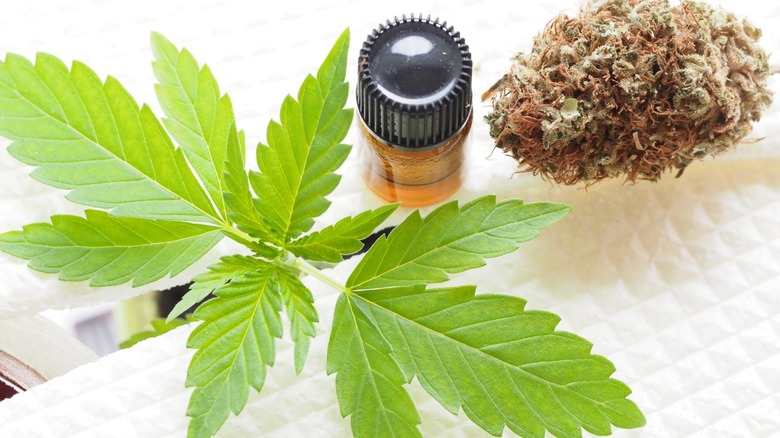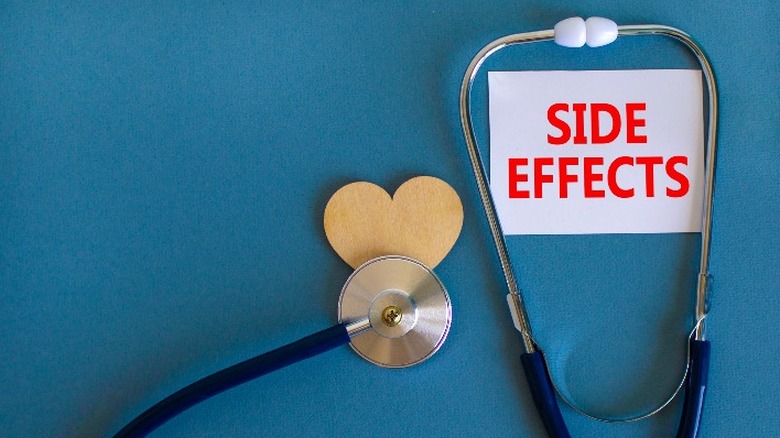Experts Warn Delta-8 THC Products Are Not Always What They Appear To Be
Cannabis has become a holistic treatment for many Americans who want an alternative to pharmaceuticals (via PR Newswire). A 2022 survey of nearly 2,000 American adults over the age of 21 found that 91% of Americans consume cannabis for a wide range of health and wellness benefits. The survey found that most people use cannabis to get a better night's sleep, reduce anxiety and stress, and to generally relax.
Recent changes in policy have shifted the public's accessibility to cannabis. According to U.S. Food and Drug Administration, the 2018 Farm Bill made hemp federally legal — as long as the plant and its derivatives contain less than 0.3% delta-9-tetrahydrocannabinol (THC). Seemingly overnight, companies began to market hemp-derived cannabis products — like cannabidiol (CBD) — to the public (per Public Broadcasting Service).
However, the U.S.Food and Drug Administration has not approved any over-the-counter (OTC) CBD cannabis products, and began warning the public that CBD products marketed online and in stores were unregulated (per U.S. Food and Drug Administration). According to Healthline, these unregulated CBD products can be mislabeled, or even lack testing for certain heavy metals and molds, creating a cause for public health concerns.
More recently, another chemical compound from the cannabis plant — delta-8-tetrahydrocannabinol (THC) — has hit the market in a synthetic form (via Centers for Disease Control and Prevention). Like CBD, over-the-counter (OTC) delta-8 THC cannabis products are unregulated. Here's everything you need to know about delta-8 THC cannabis products.
Delta-8 THC products: side effects and warnings
According to National Center for Complementary and Integrative Health, THC and CBD are the two primary chemical compounds found in the cannabis plant. WebMD says that while marijuana plants have more THC, hemp plants contain more CBD. CBD is known for its calming effects, and THC is associated with the "high" feeling.
According to Centers for Disease Control and Prevention, delta-8 THC — though naturally found in small amounts in the cannabis plant — is an unregulated product synthetically derived from CBD. It is available in a variety of products ranging from smokable flowers and vapes to gummies and infused drinks.
However, unlike CBD, delta-8 THC can produce a "high" feeling (per U.S. Food and Drug Administration). Unfortunately, some consumers are not aware that some of these hemp or CBD products contain delta-8 THC. That means they are purchasing a product they believe will not get them "high," but instead report "unexpected THC intoxication" (per Centers for Disease Control and Prevention). Healthline says that people have reported several adverse side effects of delta-8 THC products like anxiety, hallucinations, tremors, and vomiting. More importantly, children are at the most risk of delta-8 THC poisoning.
Delta-8 THC is an unregulated and synthetic cannabis product that can cause unwanted side effects. The U.S. Food and Drug Administration cautions that delta-8 THC products may contain chemicals — like household chemicals — which may be harmful if consumed.


